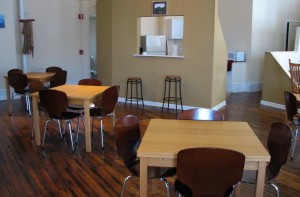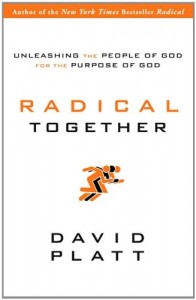Yesterday I was out mowing the lawn and while mowing the lawn I always listen to my iPod. Sometimes I listen to music and sometimes I listen to various podcasts, most of them dealing with church planting. Yesterday I started out listening to some music and then started listening to a podcast from the Ecclesia Church planting gathering from the other year. I was listening to Chris Backert talk about Planting Missionary Churches, which has been a very helpful podcast for me. (Audio from that session the 2011 conference that I attended can be found here...
http://ecclesia.343mp3.com/2011/Aggelos/2%20-%20Planting%20Missionary%20Churches%20-%20Chris%20Backert.mp3"
Over the next few days I want to share some thoughts from this podcast, what stood out to me, what is helpful to me, and some concrete steps that I plan to take because of this very helpful podcast and session by my friend Chris Backert.
One of the first thing that struck me was a back story to the story of Paul in Athens found in Acts 16:16-34. Acts 17 is one of my favorite bible texts as I love the way Paul interacts with the Athenian Culture. I find that we can learn a great deal about how we need to go into our culture with the gospel based on how Paul went to Athens. I'll share a few thoughts on what Paul did in Athens and how we can go into our culture in my next blog post.
The back story that opened up Acts 17 for me is the story of someone who came to Athens 500 years before Paul came to Athens. Here is the back story along with the story of Paul in Athens.
Sometime in the Sixth Century B.C. a man named Nicias stood before the Athenian council on Mars Hill. He reported back from a trip that he had just taken to the Pithian Oracle, a desperate trip because Athens had been plagued with disease for some time. Nicias reported: "Our city is under a curse. The priest has revealed that a certain god is punishing us for the heinous crimes of our former king." And even as he spoke, the dirges from thousands of people rose up from the city behind him, lamenting the dying there below.
One council member spoke up and said, "What god could this be? We've offered atoning sacrifices to every god. I can't imagine what other god there could be."
Nicias replied, "I don't know either, nor did the priest at the oracle know." With his words a cold wind swept through the marble columns as if to affirm the terror settling on all their hearts. Nicias continued, "We must send a ship to Crete to fetch a man named Epimenides. The oracle assures me that he will know how to appease this god."
And so after much debate, the humbled council agreed to seek the help of this foreigner. Very soon, in the time it took to sail from Athens to Crete and back, Epimenides Inisious stepped off the ship in the town of Piraeus, the harbor town. He and his traveling party began to walk up the road to Athens, and as they journeyed, signs of the plague surrounded them. Rather than being surprised or shocked by the travesties of an epidemic, Epimenides was surprised by something else. He said, "Never before have I seen so many gods. In fact, it's probably easier to find a god here than a man."
At that Nicias laughed and replied, "Yes, but for the life of me, I can't figure out who this other god could be. We worship every possible god we can imagine."
Epimenides returned, "Well, maybe that's your problem." The next morning Epimenides stood before the council on Mars Hill, along with a flock of choice, hungry sheep that he had requested the night before. As the foreigner stood there in front of the council, hundreds and hundreds of Athenians gathered there desperately looking on and hoping for some glimmer of truth, some hope of relief.
Epimenides addressed the council: "I'm going to offer a sacrifice based on three assumptions. The first one is that there's a god out there and we don't know his name. But, he's somehow connected to our plague. The second assumption is this -that if we invoke the help of this god, he is great enough and good enough that he will come to our aid."
At that one of the young men in the crowd yelled out, "How can we invoke the name of a god when we don't even know his name?"
Epimenides replied, "That's my third assumption: that this god is so great and so good that if we call upon his name, he will smile on our ignorance as long as we acknowledge that ignorance before him."
And so they all looked to the sky and Epimenides cried out, "Unknown God, look down upon this city. Forgive this city. Deliver this city. And now, if you would choose the sheep that You desire, if You would cause them to lie down upon the grass, we'll sacrifice them to You." With that they released the hungry sheep to wander around the grassy hill. Miraculously, several of the sheep began to lie down rather than graze with the rest of the flock. Artisans immediately began to mark the spot and collect the sheep for a sacrifice. Epimenides instructed them to build an altar on the spot and inscribe it to Agnos Theo, the Unknown God. They did as he instructed and sacrificed the sacred sheep.
That very day, the plague began to lift; within a week, the people of Athens were well again. Naturally, they glorified and worshipped this unknown God, leaving flowers and garlands on the newly built altar. But after a time, they began to forget. They made a statue in honor of Epimenides and put it in the city. Eventually, however, they forgot about him as well. The Athenians gradually slipped back into the worship of their old gods. The altar to the Unknown God fell into disrepair and finally into ruins. However, one day two of the city elders were walking among those ruins when one of them stopped and tore away a bit of moss to reveal the words Agnos Theo. He said to the other elder, "Demis, remember this? Remember what happened so long ago when we were just young men?"
Demis answered, "Of course! How could I forget? I was the one who cried out 'How can we offer a sacrifice to a god when we don't even know his name?'" His friend replied, "Don't think me sacrilegious, but if this god would somehow reveal himself, I imagine that we could do away with all these other gods."
Demis thought for a moment and said, "Yes, maybe so. But how will we remember? How will the people of our city remember that this god is not a foreign god to us, but one who has visited our city and saved us from the horrible plague?"
Shortly thereafter, the two men resolved to go before the city council and pass a motion that would preserve and maintain the uncovered altar to the Unknown God for all posterity.{1}
Half a millennium passed until another foreigner with a spiritual mission stepped foot in Piraeus. Not a Cretan but a Jew, Paul found himself, like Epimenides, much more amazed at all the idols than at the sites of Athens. We read about his encounter in Acts 17:16-34. It seems Paul had not planned on going to Athens but because he ran into some trouble in Berea (they ran him out of town), he fled on a ship and ended up waiting in Athens for his friends Silas and Timothy.
While Paul was waiting for them in Athens, his spirit was provoked within him as he saw that the city was full of idols. So he argued in the synagogue with the Jews and the devout persons, and in the marketplace everyday with those who chanced to be there. Some of the Epicurean and Stoic philosophers also met him there. Some said, "What would this babbler say?" Others said, "He seems to be a preacher of foreign divinities." They said this because he preaches Jesus and this resurrection. And they took hold of him and brought him to the Areopagus [Mars Hill], saying, "May we know what this new teaching is which you present to us? For you bring some strange things to our ears and we wish to know therefore what these things mean." (Now all the Athenians and the foreigners who lived there spent their time in nothing except telling or hearing something new.)
So Paul standing in the middle of the Areopagus said, "Men of Athens! I perceive that in every way you are a very religious people. For as I passed along and observed the objects of your worship, I found also an altar with this inscription: To An Unknown God. What therefore you worship as unknown this I proclaim to you that the God who made the world and everything in it, being Lord of heaven and earth, does not live in shrines made by man. Nor is he served by human hands as though he needed anything since he himself gives to all men life and breath and everything. And he made from one every nation of men to live on all the face of the earth, having determined allotted periods and the boundaries of their habitation; that they should seek God in the hope that they might feel after him and find him, yet he is not far from each one of us. For in him we live and we move and we have our being. As even some of your poets have said, 'For we are indeed his offspring.' Being then God's offspring, we ought not to think that the deity is like gold or silver or stone -a representation by the art and imagination of man. The times of ignorance God overlooked, but now he commands all men everywhere to repent because he has fixed a day on which he will judge the world in righteousness by a man whom he has appointed. And of this he has given assurance to all men raising him from the dead." (Acts 17:16-31)
I'll post some thoughts later this week about Paul's missionary strategy in Athens and what we can learn about what our missionary strategy should be like here in the 21st century based on Acts 17.










